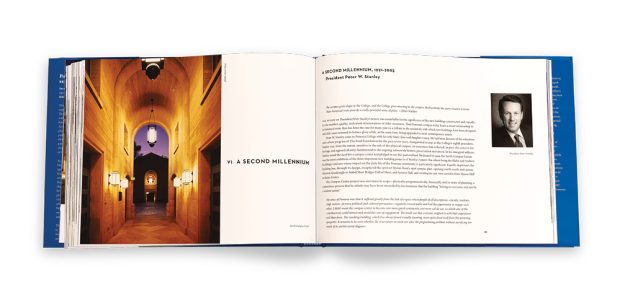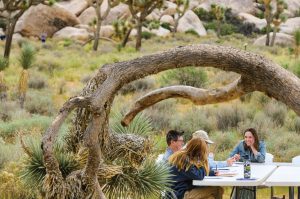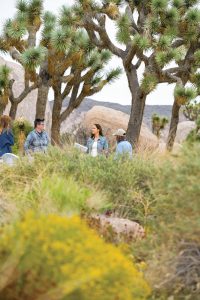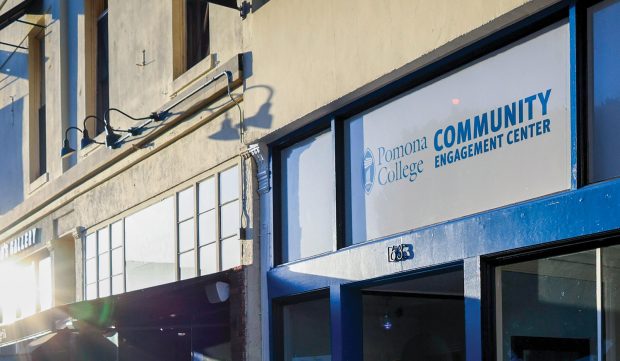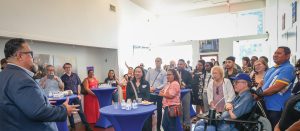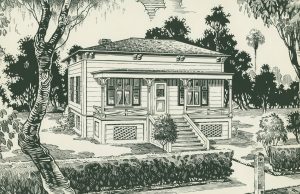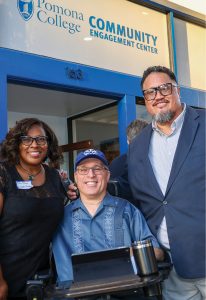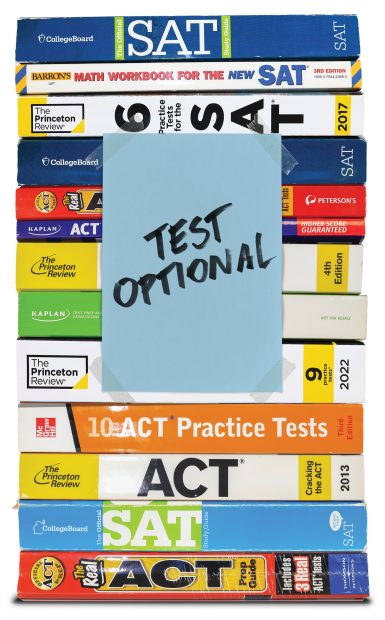Studio of the Voice: Essays
In Studio of the Voice: Essays by Marcia Aldrich, Marcia Aldrich ’75 serves up intense personal essays, often reflecting on her relationships with her mother and daughter.
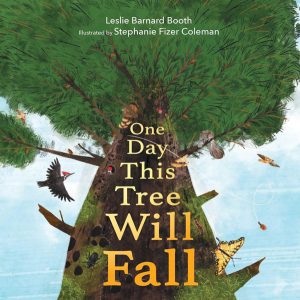 One Day This Tree Will Fall
One Day This Tree Will Fall
One Day This Tree Will Fall, a nonfiction picture book by Leslie Barnard Booth ’04, invites readers to celebrate the life cycle and afterlife of trees.
 Quiet Voice, Awesome Power
Quiet Voice, Awesome Power
Amanda Edwards ’96, in Quiet Voice, Awesome Power, guides readers in communicating with spirit, defining their spiritual path and living with power and purpose.
 How Much Are These Free Books? True Tales from the Book Nook
How Much Are These Free Books? True Tales from the Book Nook
How Much Are These Free Books? True Tales from the Book Nook by Judy Schelling Hoff ’62 reflects on Hoff’s bookstore in Schenectady, New York, through 19 years of its existence.
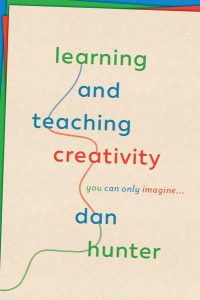 Learning and Teaching Creativity
Learning and Teaching Creativity
In Learning and Teaching Creativity, Dan Hunter ’75 details steps to improve student and teacher creativity through imagination.
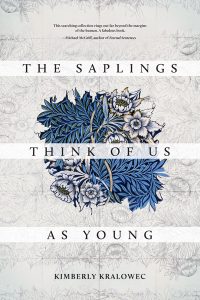 The Saplings Think of Us as Young
The Saplings Think of Us as Young
The poems in The Saplings Think of Us as Young by Kim Kralowec ’89 explore the intimacy of living in close relationship with extremes of beauty and distress.
 Exquisite Dreams: The Art and Life of Dorothea Tanning
Exquisite Dreams: The Art and Life of Dorothea Tanning
Exquisite Dreams: The Art and Life of Dorothea Tanning by Amy Lyford ’86 is a study of the artist’s life and creative output as well as the history of Surrealism.
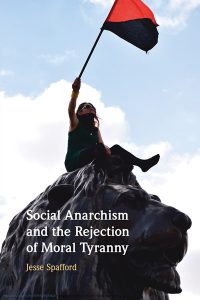 Social Anarchism and the Rejection of Moral Tyranny
Social Anarchism and the Rejection of Moral Tyranny
In Social Anarchism and the Rejection of Moral Tyranny, Jesse Spafford ’12 articulates and defends social anarchism, staking out a number of bold and original positions.
 The Improbable Tales of Baskerville Hall
The Improbable Tales of Baskerville Hall
Ali Standish ’10 reimagines Arthur Conan Doyle’s early life in her boarding school mystery novel, The Improbable Tales of Baskerville Hall.

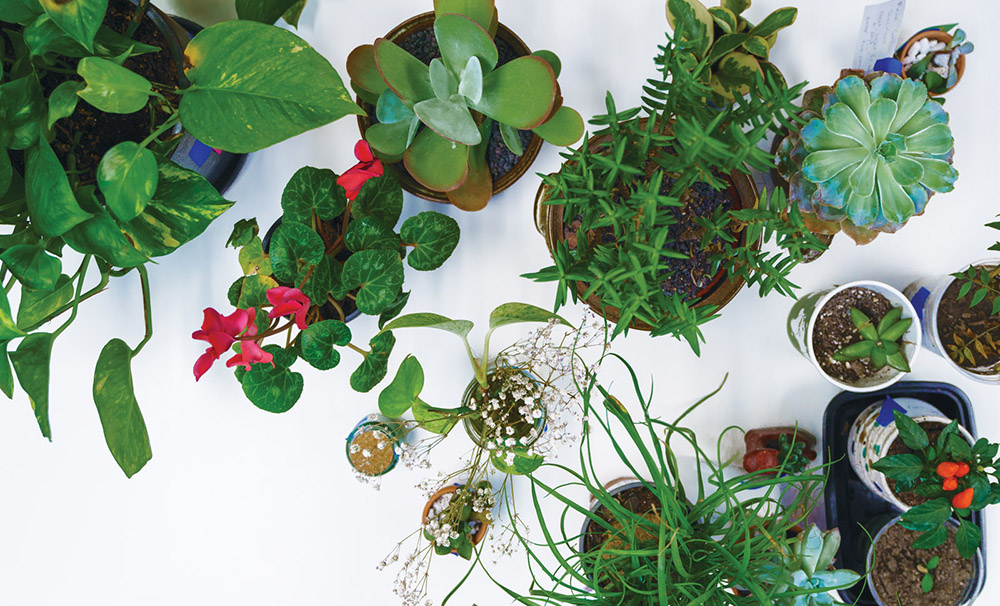
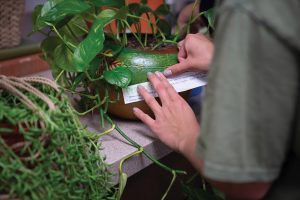
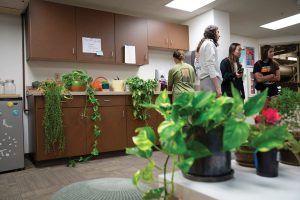
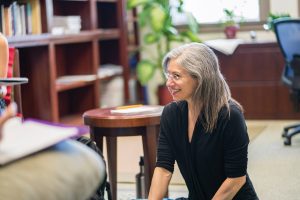
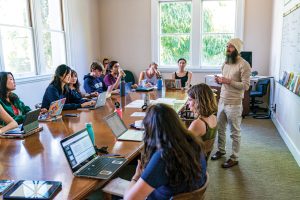
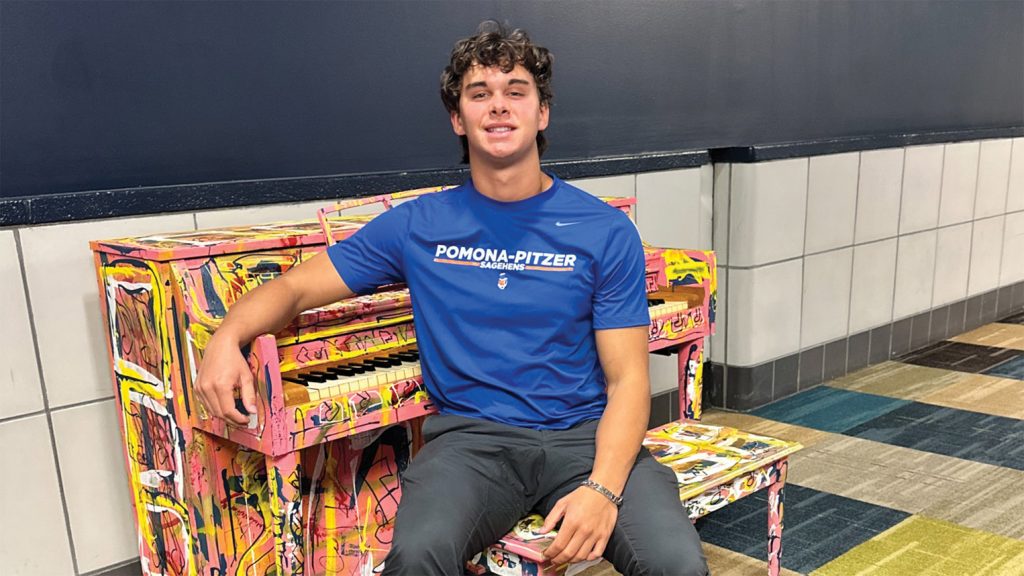
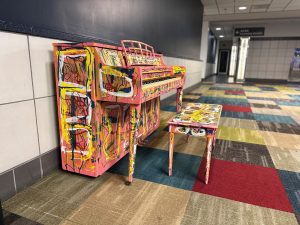


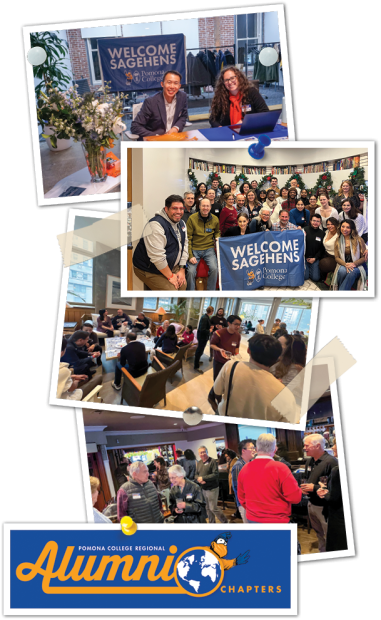 With just a handful of months left in my term as Alumni Association Board president, I’ve been reflecting on my time as a board member these past several years. One of the best things about my involvement has been the opportunity to connect with so many of you. I continue to be awestruck that Pomona grads really do blanket our globe. And whether it’s been chatting with alumni at College events, catching up with classmates at informal gatherings, or a random meeting with a fellow Sagehen after spotting a Pomona T-shirt, it reminds me every time of the broad and unique community we have. We often talk about the Pomona experience referring to our time as students, but it only begins there. Meeting up with each other through events, work or chance encounters reminds us that the Pomona experience extends beyond the Gates and throughout our lives.
With just a handful of months left in my term as Alumni Association Board president, I’ve been reflecting on my time as a board member these past several years. One of the best things about my involvement has been the opportunity to connect with so many of you. I continue to be awestruck that Pomona grads really do blanket our globe. And whether it’s been chatting with alumni at College events, catching up with classmates at informal gatherings, or a random meeting with a fellow Sagehen after spotting a Pomona T-shirt, it reminds me every time of the broad and unique community we have. We often talk about the Pomona experience referring to our time as students, but it only begins there. Meeting up with each other through events, work or chance encounters reminds us that the Pomona experience extends beyond the Gates and throughout our lives.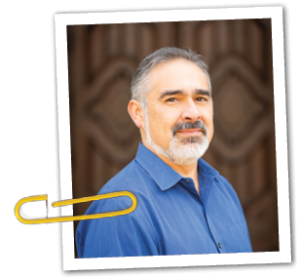
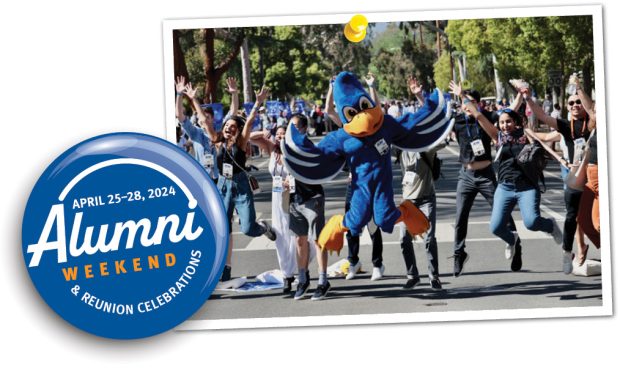
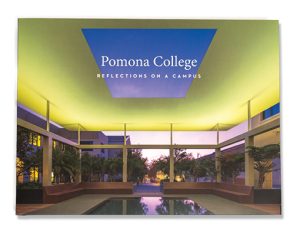 Written predominantly during the pandemic, this second edition of Reflections by Marjorie Harth, emerita professor and director of the former Pomona College Museum of Art, updates and expands the scope of the first, published in 2007. Like the first edition, this 292-page book documents and reflects upon the campus of Pomona College as an architectural entity and visual expression of the history and identity of a great academic institution. Many of the original entries and essays have been edited and updated, as have the photographs. Among new entries is Scott Smith’s essay on landscape architect Ralph Cornell.
Written predominantly during the pandemic, this second edition of Reflections by Marjorie Harth, emerita professor and director of the former Pomona College Museum of Art, updates and expands the scope of the first, published in 2007. Like the first edition, this 292-page book documents and reflects upon the campus of Pomona College as an architectural entity and visual expression of the history and identity of a great academic institution. Many of the original entries and essays have been edited and updated, as have the photographs. Among new entries is Scott Smith’s essay on landscape architect Ralph Cornell.